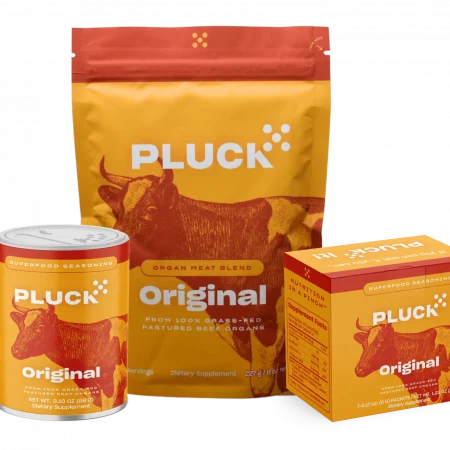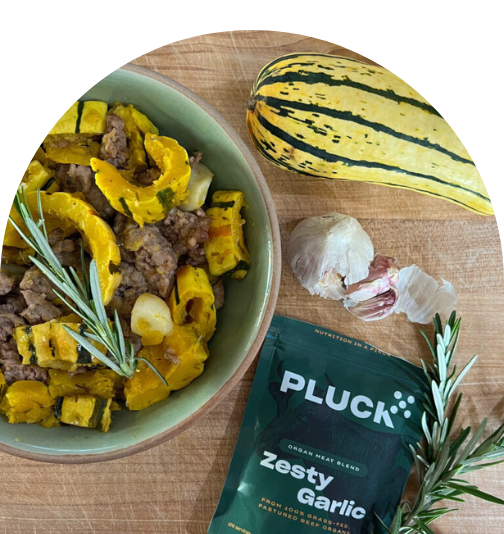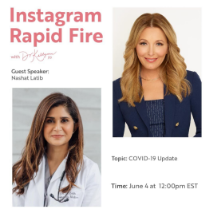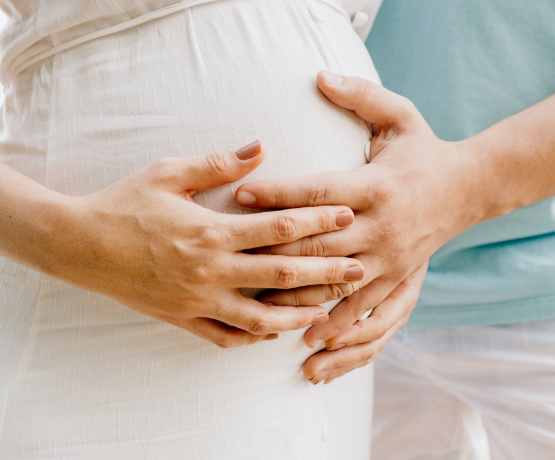Nature’s ultimate prenatal superfood
More and more couples are struggling with fertility issues and looking for natural ways to boost their chances of conceiving. Whether you choose the natural route or interventions such as IVF or IUI, science shows that what you eat plays a huge role in reproductive health.
Organ meats, long revered in traditional cultures, provide a powerful way to support reproductive health in both men and women.
These nutrient-dense foods provide essential vitamins, minerals, and fatty acids that are the foundation for hormone balance, egg and sperm health, and overall reproductive function. Unlike synthetic supplements, which often contain isolated nutrients, the bioavailable compounds in organ meats work synergistically to optimize fertility, making them one of the most effective dietary tools for couples trying to conceive.
The Nutrient Density of Organ Meats & Its Impact on Fertility
Organ meats like liver, heart, and kidney are among the most nutrient-dense foods available. They’re far more nutrient-dense than muscle meats or plant-based foods, packing in a rich supply of vitamins A, B12, folate, choline, CoQ10, and heme iron—all of which are key for reproductive health. In fact, liver contains more nutrients gram for gram than any other food. [1] Many people today struggle with nutrient deficiencies due to modern diets that rely heavily on processed foods and lack the rich, whole-food sources our ancestors consumed. [2]
Traditional cultures often prioritized organ meats for couples trying to conceive, recognizing their fertility-enhancing benefits long before modern science confirmed their value. Today, research supports what ancestral wisdom has long understood—organ meats provide the critical building blocks needed to enhance reproductive health in both men and women. [3]
How Organ Meats Support Female Fertility
A woman’s ability to conceive depends on a lot—hormone balance, egg quality, and getting the right nutrients all play a role. But things like poor diet, stress, and toxin exposure can disrupt that balance, making it much harder to get pregnant. Fortunately, organ meats provide a rich source of nutrients that help regulate the menstrual cycle, promote ovarian health, and create an optimal internal environment for conception.
Organ meats improve female fertility by addressing deficiencies with highly absorbable (AKA: “bioavailable) vitamins and minerals. Eating organ meat can help support a more regular cycle, improve egg quality, and increase the chances of a healthy pregnancy. [4]
Vitamin A for Egg Quality & Hormonal Balance
Vitamin A is an essential nutrient for female reproductive health, playing a key role in the development and maturation of ovarian follicles. Follicles hold eggs that need to develop properly before ovulation. Without enough vitamin A, eggs may not fully mature, which can lead to irregular ovulation and make conception more difficult. Vitamin A also plays a key role in regulating progesterone, the hormone that helps maintain the uterine lining and supports early pregnancy.
A deficiency in vitamin A can increase the risk of implantation failure and early miscarriage. While some plant foods contain beta carotene, a precursor to vitamin A, the body must convert it into retinol to use it effectively. The retinol form found in the liver is immediately available for the body, making it the most potent and bioavailable source of this critical fertility nutrient. [4, 5]
Vitamin B & Folate for Neural Tube Development & Ovulation
Adequate B12 and folate can increase the likelihood of conceiving and help prevent early pregnancy loss. [6]
Folate is best known for preventing neural tube defects, but its role in fertility starts long before pregnancy. Women with enough folate are more likely to ovulate regularly, while low levels have been linked to missed ovulation and early miscarriage. Unlike synthetic folic acid, which has to be converted by your liver before your body can use it, the folate naturally found in organ meats is highly bioavailable—your body absorbs and utilizes it immediately.
Organ meats, especially liver, are fertility superfoods packed with natural folate and B vitamins like B6 and B12. These nutrients do more than just keep your energy up—they help balance homocysteine levels and support methylation, a process that’s key for DNA synthesis, egg quality, and early embryo development. If you’re trying to conceive, adding organ meats to your diet can give your eggs the nutrients they need to mature properly and set the stage for a healthy pregnancy. [7]
Iron & Choline: Two Essential Nutrients for Female Fertility
Iron deficiency is one of the most common causes of infertility in women, as it can lead to anovulation (lack of ovulation), poor egg quality, and increased risk of miscarriage. [8] Many women struggle to get enough iron from their diets, particularly those who consume a plant-based diet, which contains non-heme iron that is harder for the body to absorb. The heme iron found in organ meats is far more bioavailable and effectively increases iron stores, reducing the risk of fertility-related complications.
Another critical nutrient, choline, is essential for fetal brain development and maternal liver health. Over 90% of pregnant women don’t get enough choline. [9] Choline supports methylation and detoxification processes, which are necessary for reproductive function. Liver and kidney are some of the richest sources of choline, making them invaluable for women trying to conceive. [10]
How Organ Meats Support Male Fertility
Male fertility plays an equally important role in conception, yet it is often overlooked in discussions about reproductive health. Sperm health depends on three primary factors: count, motility (movement), and morphology (shape). A poor diet, oxidative stress, and nutrient deficiencies can all make it harder for sperm to fertilize an egg. Organ meats provide key nutrients that support strong, healthy sperm, increasing the chances of conception. Filling these nutritional gaps and reducing oxidative damage can be a game-changer for male fertility.
Zinc: The Master Mineral for Sperm Production
Zinc is one of the most crucial minerals for male fertility, playing a key role in testosterone production, sperm formation, and overall sperm health. Men with low zinc levels tend to have reduced sperm count, poor motility, and increased DNA fragmentation, all of which contribute to infertility.
Zinc also helps protect sperm from oxidative stress, ensuring their structural integrity and function. Organ meats like liver and kidney are rich in bioavailable zinc, making them an excellent dietary choice for improving sperm production and quality. Research has shown that men who increase their zinc intake experience higher sperm counts and improved reproductive outcomes. [11]
Coenzyme Q10 (CoQ10) for Sperm Motility & Energy Production
CoQ10 is a powerful antioxidant that plays a key role in cellular energy production and sperm movement. Sperm need a lot of energy to swim toward the egg, and CoQ10 supports this process by fueling ATP production. It also helps protect sperm from oxidative stress, reducing DNA damage and improving overall sperm quality.
Organ meats like heart and liver are packed with CoQ10, providing 5-10 times more than muscle meats, making them a valuable addition to a fertility-focused diet. Organ meats like heart and liver are packed with CoQ10. [12] Research shows that men who take CoQ10 supplements see better sperm motility and higher fertilization rates. [13]
Omega-3 Fatty Acids for Sperm Structure & Function
Omega-3 fatty acids are essential for maintaining the structural integrity of sperm cell membranes. They help improve sperm flexibility and function, ensuring they can effectively navigate the female reproductive tract. A deficiency in omega-3 fats can lead to abnormal sperm morphology, reducing the chances of successful fertilization. Organ meats such as heart and kidney contain significant omega-3s, providing a natural way to support optimal sperm structure and overall reproductive function. [14]
Incorporating Organ Meats into the Diet for Fertility
Many people are unfamiliar with incorporating organ meats into their diets, but there are simple and delicious ways to enjoy these fertility-boosting foods. Start by adding small amounts of liver to ground beef for meatballs or mixing heart into burgers and tacos.
Homemade bone broths made with liver, heart, or kidneys offer a gentle introduction to organ meats while infusing soups and stews with essential nutrients.
Organ meat seasoning, made from freeze-dried liver and kidney, is another excellent way to get the benefits without altering the texture of meals. We love Pluck Seasonings, which offers a chef-designed blend of organic spices, herbs, and umami organs that enhances the flavor of any dish. It’s so good even kids love it!
Enter code REIMAGINEDHEALTH to get 15% off through our link here.
Crucial Nutrients for Both Partners Looking to Get Pregnant
In addition to the nutrients mentioned above, several other vitamins, minerals, and compounds found in organ meats play a vital role in fertility for both men and women:
Vitamin C: The Stress Protector
Vitamin C is an antioxidant powerhouse that helps protect eggs and sperm from oxidative stress and supports healthy ovulation. Organ meats like liver contain lots of vitamin C – although not as much as citrus fruits. [15]
Vitamin D: The Sunshine Vitamin
Vitamin D is essential for hormonal balance, ovulation, and sperm health. While sun exposure is the best way to get vitamin D, organ meats provide a highly bioavailable dietary source of this critical nutrient.
Vitamin E: The Fertility Guardian
Another important antioxidant, vitamin E helps safeguard reproductive cells from damage and supports egg and sperm quality. Organ meats are one of the richest food sources of bioavailable vitamin E. [16]
Amino Acids: The Building Blocks of Life
As the building blocks of proteins, amino acids are crucial for hormone production, egg and sperm development, and overall reproductive function. Organ meats provide a complete array of essential amino acids in a highly digestible form.
By incorporating these nutrient-dense foods into your preconception diet, you give your body the raw materials it needs to optimize fertility and prepare for a healthy pregnancy.
Conclusion
Organ meats provide a powerful, nutrient-dense way to improve fertility in both men and women. Their rich concentrations of zinc, vitamin A, B vitamins, omega-3 fatty acids, and CoQ10 are essential for reproductive health. Unlike synthetic supplements, which may be poorly absorbed, these nutrients are in their most bioavailable forms, making them easier for the body to utilize. With modern diets often lacking these fertility-boosting nutrients, incorporating organ meats can be a game-changer for couples trying to conceive. By embracing the wisdom of ancestral diets and prioritizing nutrient-dense foods, couples can support their reproductive health naturally and effectively.
Curious about adding organ meat to your diet? Try our Pluck—our go-to partner for high-quality, fertility-friendly organ meats.

Be sure to enter promo code REIMAGINEDHEALTH for 15% off!








